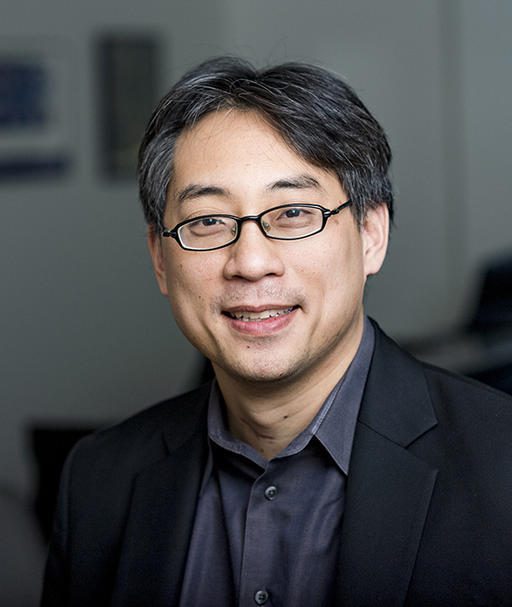Faculty pianist Melvin Chen to explore memory through Medtner, Wu, Schumann and Grieg
Melvin Chen, faculty pianist at the School of Music, will explore memory through a program of Medtner, Wu, Schumann and Grieg in the fourth concert of the Horowitz Piano Series.

Yale University
School of Music faculty pianist Melvin Chen will perform works by Nikolai Medtner, Zihan Wu, Robert Schumann and Edvard Grieg in Morse Recital Hall on Wednesday, Jan. 24 at 7:30 p.m.
The concert is part of the Horowitz Piano Series, a series of piano recitals honoring pianist Vladimir Horowitz, who left his papers with the University before he died. Chen has performed in the series almost every year since he arrived at Yale.
Chen, a professor in the practice of piano, joined the School of Music faculty in 2000. He served as associate director at Bard College Conservatory of Music in 2005 before returning to Yale in 2012, where he was appointed as a deputy dean for the School of Music. Renowned for his solo and chamber performances in the United States, Canada and Asia, Chen’s solo recordings have received critical acclaim — his “Diabelli” Variations by Beethoven was lauded as a “classic” by the American Record Guide.
“He’s potent in character, powerful and dramatic, and he has this special ability to bring out the essence of every piece,” said Daniel Che MUS ’25, one of Chen’s students.
When approaching programming, Chen tries to put together a program where both the performer and listener can see a clear reason why the pieces are on a program together. He compares the recital to a narrative that requires understanding from both sides.
“I think it is important for both the performer and the listener because a recital is a kind of narrative, and both the listener and the performer should understand the narrative that is going on through the course of the recital,” he said.
All the pieces on Wednesday’s program explore the idea of memory, according to Chen. The program will open with Russian composer Nikolai Medtner’s “Sonata Reminiscenza,” the first of a set of pieces Medtner named “Forgotten Memories.”
The second piece, “Rhapsody of Hmong,” was written by Zihan Wu MUS ’25, another one of Chen’s piano students. Wu, originally from China, received her bachelor’s in piano and composition at the Eastman School of Music before coming to the School of Music as a composition major.
“Rhapsody of Hmong” was inspired by the Hmong people in Southwest China, Wu said. Wu uses the piano to imitate the sound of the qeej, a 3000-year-old homophonic wind instrument played by the Hmong she first heard during a visit to a Hmong village. The piece has a narrative structure that follows the relationship between the instrument and the Hmong people, she said.
“It opens with the sound of the echoing of living things, and the qeej comes from nowhere, gradually becoming the interaction among people and the instrument,” Wu said. “The instrument is part of their life, and I am trying to depict that sound, that interaction, in a contemporary language — ancient China in a modern perspective.”
Wu said she found working with her own teacher on a piece she wrote an “interesting reversal of roles.” Chen’s studio has two pianos — one of which Chen normally sits at during lessons to demonstrate. But when Wu and Chen worked together on Wu’s piece, they switched seats, with Wu sitting at the teaching piano to tell Chen about her intentions for the piece.
Chen’s performance on Wednesday will be the first time that Wu will hear her own piece played.
“It just feels like such a special honor to be able to listen to my teacher perform my own music,” Wu said.
After Wu’s piece, Chen will perform Robert Schumann’s “Gesänge der Frühe,” or “Songs of Dawn.” Schumann, who suffered from psychotic melancholia, wrote the piece one year before being admitted into a mental institution, and Chen described it as “strange, philosophical and utterly beautiful.”
The program will end with 12 of Edvard Grieg’s “Lyric Pieces” — “little vignettes” and character pieces. To Chen, they evoke a sense of memory, both explicitly — the first and the last pieces are related and the last piece is named “Remembrance” — and through the music’s suggestion of nostalgia-tinged images.
Chen received his bachelor of science in chemistry and physics from Yale College before obtaining a master’s degree in both piano and violin from Juilliard. He then went to Harvard University to earn a doctorate in chemistry, where he continued to “play more and more” concerts in New York every month.
“First, I tried doing mainly music [at Juilliard]. Then I went all in on science [at Harvard]. I realized I preferred the music,” Chen said.
After earning his doctorate, he returned to Yale to teach piano, emphasizing that Yale “just feels like home.” Chen mentioned feeling “incredibly lucky” to work at Yale and that he loves being able to walk by places like Old Campus and say “that’s where I stayed when I was a freshman.”
His comfort on campus doesn’t necessarily translate to comfort backstage — Chen said that playing at Yale can be “stressful” because of the talent level of the other students and his colleagues.
But nerves and excitement often go hand in hand, and Chen said he looks forward to presenting the “unique beauty” of each of the pieces on the program Wednesday.
“I love music because it combines the intellectual and emotional to send a powerful message, but not necessarily a specific one — it affects each person differently and individually,” Chen said.
Tickets for the concert start at $17. Yale faculty and staff can purchase tickets for $12, and students can buy them for $8.







